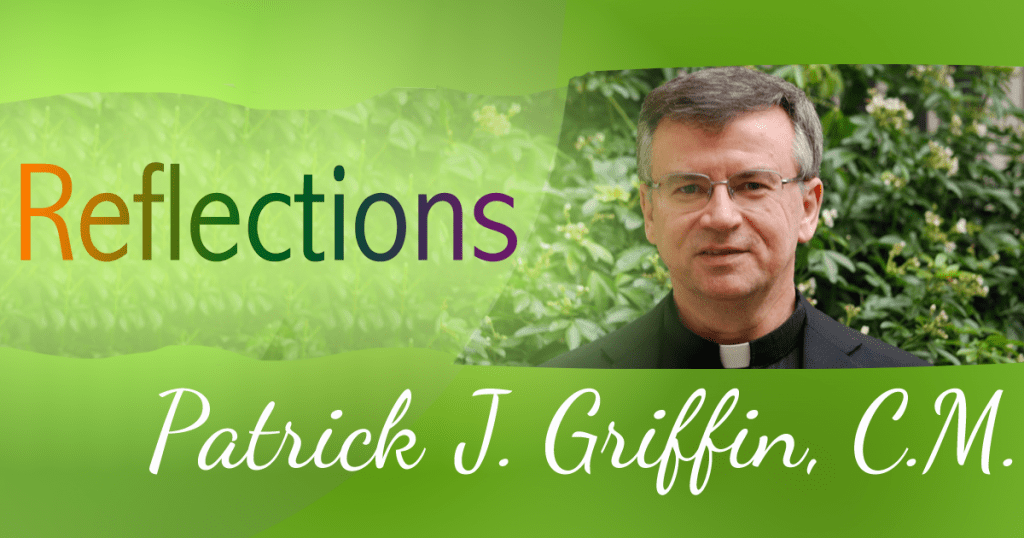Do you want to hear Joseph pray? You might begin with Psalm 1.
With confidence, we can say that Joseph prayed the Psalms. We can make the same assertion about Jesus, Mary, Elizabeth, Peter, James, John, Paul, Martha, Mary, Lazarus and any other Jew that one can name from the New Testament. The Psalms comprised an integral part of the prayer of Israel, and thus of all faithful members of “the Chosen People.” Not only can we say that Joseph prayed the Psalms, but we can also identify some of the times when he would have prayed particular ones—that is the matter for other reflections.

Focus with me on Psalm 1. This starting point makes sense for a number of reasons. Psalm 1 points us to the importance of meditation. It holds pride of place in the Psalter because it sets the direction for the entire book—just as Psalm 150 sets the destination for all the Psalms. After describing what a good person does not do in the first verse, the Psalm continues (v. 2):
Rather, the law of the LORD is his [the just person’s] joy;
and on his law he meditates day and night.
The “law of the LORD” demands our attention. “Law” here does not mean some circumscribed written code, but the will of God, God’s desire for humankind. This “law” lives in a dynamic and positive manner. The just person delights in the way of the Lord and he meditates upon God’s teaching “day and night,” which is to say regularly and faithfully. It applies to the whole of one’s life. Listen to what Pope John Paul II writes in his apostolic exhortation on Joseph “Guardian of the Redeemer:” “[The Gospels]allow us to discover in his “actions”—shrouded in silence as they are—an aura of deep contemplation”(25). Joseph was a thoughtful man. The Psalms support and contribute to such a disposition.
Do you hear the way in which the opening lines of the Psalter apply to Joseph? Can you see how he employs them in the story of his annunciation?
Now this is how the birth of Jesus Christ came about. When his mother Mary was betrothed to Joseph, but before they lived together, she was found with child through the holy Spirit. Joseph her husband, since he was a righteous man, yet unwilling to expose her to shame, decided to divorce her quietly. (Mt 1:18-19)
Joseph knew and respected the law of his people. He believed that it articulated the teaching of the Holy One. But, he also knew that one could not interpret the law in a way that hurt people, and so he chooses to act with compassion in relation to his beloved Mary. His meditation on the law led him along this path. This response flows with the teaching of Pope Francis who places the person above the principle without denying the importance of the principle. In Patris Corde, he writes “The nobility of Joseph’s heart is such that what he learned from the law he made dependent on charity.”
Psalm 1 continues:
He is like a tree
planted near streams of water,
that yields its fruit in season;
Its leaves never wither;
whatever he does prospers.
The Psalm interprets the tree as something deeply planted, something that draws its nourishment from the Lord. The tree provides fruit for those who hunger. It can offer healing and shade through its leaves and branches. It supplies timber and tinder for the community.
Can you see Joseph praying that he might be this kind of graced person who delights in and studies the law faithfully? This kind of person stands like a tree that gives life-giving presence/presents to a people.
Psalm 1 introduces the Psalter because it sets the stage by promoting the teaching that will characterize the rest of the writing. First, seek the will of God and delight in its essence. Then, be a blessing for yourself and for all in your community. From that beginning, when Joseph discovers the will of God in this life, he responds faithfully and completely. His love and respect for the law remained firm and guided his entire life. This gift he brought to Jesus.
Returning to the opening point, we can insist that Joseph prayed this Psalm. We can imagine how he asks the Lord for the grace to attend to the divine instruction in his life and for the perseverance to be a blessed, deeply rooted tree for others. We know how that prayer receives an answer.







An imaginative and fruitful reflection.-